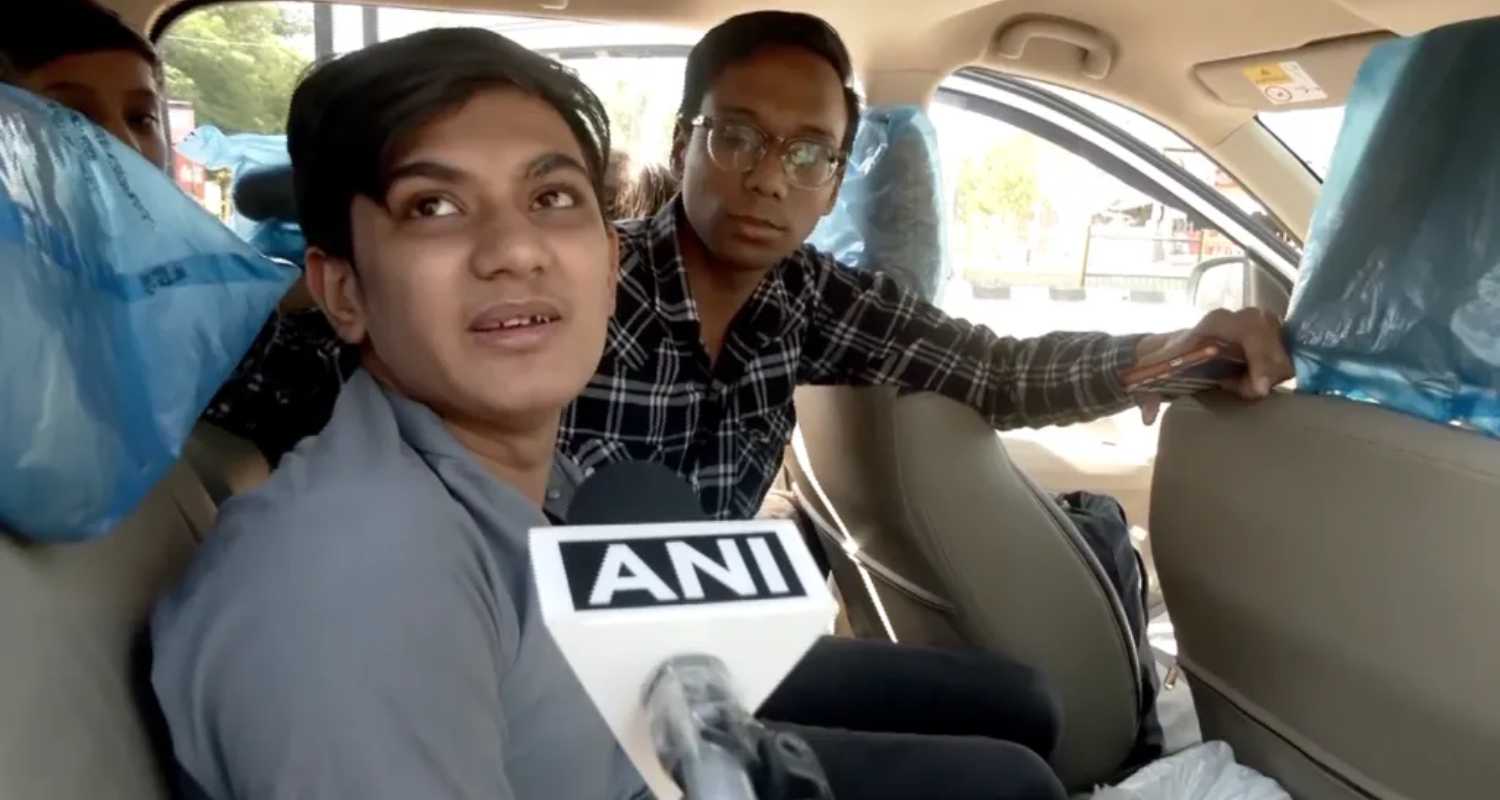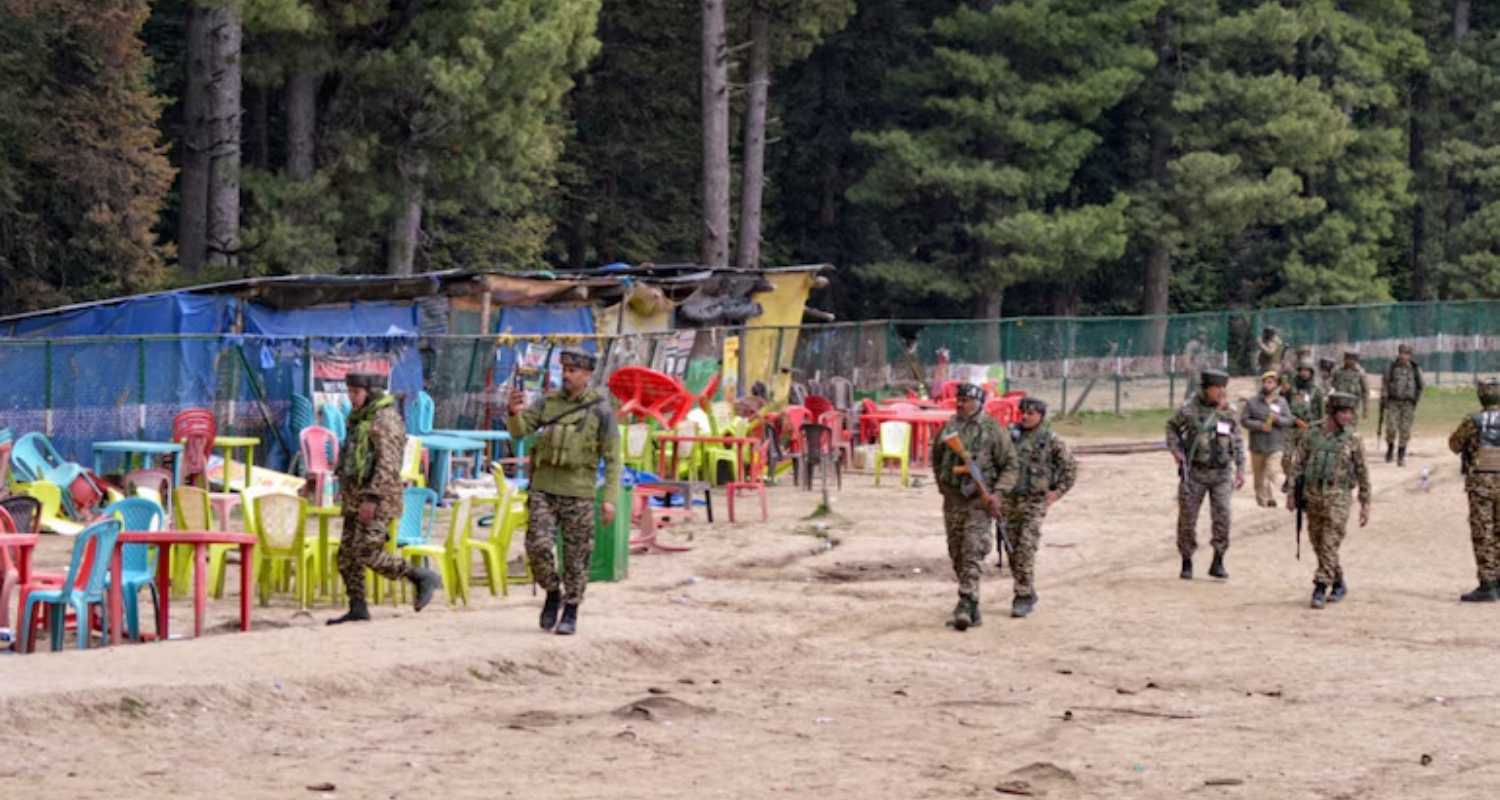Every time Shahida Adrees thinks about her situation, she feels deep sadness. She has to choose between staying in India with her husband or going back to Pakistan to be with her siblings.
Shahida, who is now 61-years-old, came to India from Pakistan in 2002. She married her cousin, Adrees Khan, who lives in Punjab, India. (In some South Asian communities, cousin marriages are common.) They had a quiet life together. Adrees worked as a driver, and Shahida took care of their home and their child.
Shahida is living in India on a long-term visa. Every few years, she used to travel to Pakistan to visit her family by getting a special travel permit. But everything changed last week. After a deadly attack in Indian-administered Kashmir that killed 26 people, India stopped giving most visas to Pakistani citizens. Pakistan, denying involvement in the attack, responded by also canceling most visas for Indians.

Shahida realised what this meant — she could go back to visit her sick aunt in Pakistan now, but she might not be allowed back into India. Or she could stay in India and possibly never see her family again. She decided to stay in India. She canceled her visit. “If I had gone, I wouldn’t be allowed to return to India. Now that I stayed, I don’t know if I’ll ever see my brothers and sisters again,” she said.
Shahida's story is not unique. Many families in India and Pakistan have members living on both sides of the border and now face separation. Even though India and Pakistan have tense political relations, marriages between people from the two countries still happen. This is because the two countries share a deep cultural history. In 1947, when the countries separated, millions had to leave their homes and move across the new borders.
This separation split many families. Many Indians have relatives in Pakistan, and vice versa. Some families, like Shahida’s, stay connected by marrying relatives across the border. Nowadays, many couples also meet online and work hard to be together, despite all the challenges.
Many of these people apply for long-term visas or even for citizenship, but these processes can take many years. After the new visa restrictions, heartbreaking scenes were seen on TV and social media — couples, children, and elderly parents begging officials for help.
Mohammed Ayat, a 17-year-old from Pakistan, came to India last month with his mother to visit relatives. His mother is an Indian citizen who lives in Pakistan on a visa, but it’s still waiting to be renewed. Now, Ayat has to return to Pakistan without her.

“She can’t come back with us. They want me to leave my mother behind. How is that fair?” he said tearfully. “They can punish the attackers, but what did we do wrong?” We don’t know the exact number of people affected, but it is believed to be in the hundreds.
Parveen, who only uses one name, was sitting on a bus going to the Attari-Wagah border. She told reporters she has lived in India for 41 years. “I have no one in Pakistan — no mother, no brothers, no sisters. I have nowhere to go,” she said. Families are upset because the visa changes happened suddenly and left them unsure of what to do.
India’s restrictions do not apply to people like Shahida who already live in India on long-term visas. These visas, which last up to five years, are given to Pakistani and Bangladeshi women who marry Indian citizens.
Long-term visa holders are allowed to visit their home country if they also get a second permit called a NORI visa (No Objection to Return to India).
But after the attack, even some NORI visa holders were stopped at the border as officials waited for clearer instructions.
Shahida says Indian officials told her NORI visa holders will not be affected by the new rules. But she still doesn’t want to take the risk of going to Pakistan.
She wonders if life would be easier if she had Indian citizenship. “I applied for it in 2009, but nothing happened. I never got a reply,” she said. For others, even getting Indian citizenship hasn’t removed the fear.
Tahira Ahmed, originally from Pakistan, married Maqbool Ahmed, an Indian, in 2003 and moved to Punjab. She got Indian citizenship in 2016 — 13 years later. But she’s still scared she might be sent back to Pakistan.
“Every time things get tense between India and Pakistan, our lives are affected,” she said. “My wedding was delayed for two years in 2001 because the border closed after an attack on India’s parliament.” While they wait for answers, some couples are becoming desperate.
Earlier this week, BBC Punjabi met Maria Masih, a Pakistani woman who came to India in 2024 to marry her partner, Sonu. They met online and knew each other for many years. After they got married, they applied for a long-term visa for Maria. But it's still being processed. She is now seven months pregnant.
“I want to stay here. I don’t want to go back. Please give me a visa,” she said, looking very worried.
Now, reports say the couple is missing, and police are investigating. Far away, Tahira Ahmed wonders if anyone can really blame them. “They came here because of love,” she said. “How is that wrong?”




